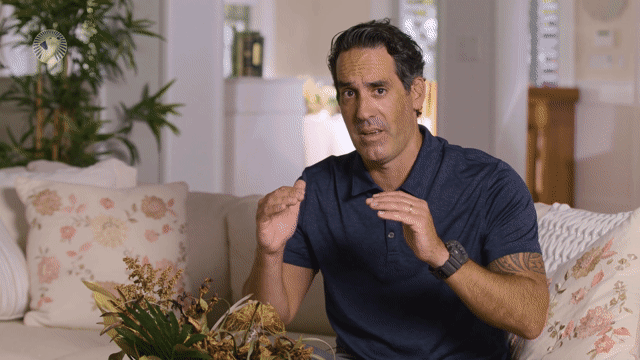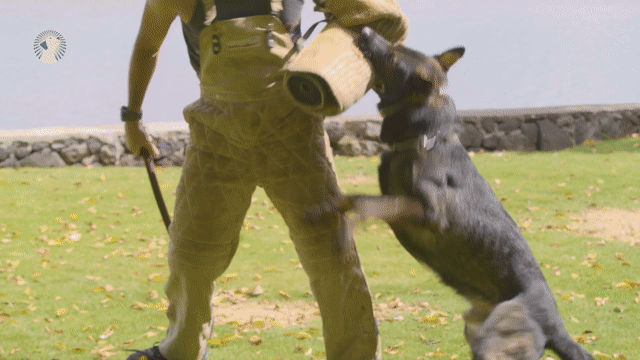
Dog Aggression: Causes & How to Overcome It
Dog aggression is one of the most frustrating and common behavior problems in dogs. Smaller breeds (such as Chihuahuas) and puppies are more prone to this behavior, but any dog can become aggressive under certain circumstances. The best way to deal with dog aggression is to start by taking a few steps back and observing your dog. When you know what triggers it, it's easier for you to avoid these situations or handle them better. Here are some causes for this behavior disorder and ways to overcome it!
What is Dog Aggression?
Dog aggression is exactly what it sounds like - the propensity of certain dogs to act aggressively, most often towards people or other dogs. The behavior can be triggered by fear or anxiety and manifests in shaking, trembling, snapping, biting, and lunging. A high-pitched bark may also indicate that your dog feels threatened or is too afraid to react any other way.
Dog aggression can be dangerous and should not be taken lightly. If your dog is exhibiting signs of aggression, it's important to consult with a behaviorist or trainer who can help you address the issue.
Causes of Dog Aggression
There are many different reasons why dogs may become aggressive, but some of the most common causes include:
- Fear or Anxiety - Dogs may become aggressive when they're afraid or anxious, especially if they're being cornered or feel in danger.
- Territoriality - Dogs may become aggressive when they feel like their territory is being threatened, whether it's their home, yard, car, or person.
- Defensiveness - Dogs may become aggressive when they feel like they're being attacked or are in danger.
- Prey Drive - Some dogs are bred specifically to have a high prey drive, meaning they enjoy chasing and hunting down small animals. This can sometimes lead to aggression towards other animals or people.
- Human Aggression - Unfortunately, some dogs learn to become aggressive towards people from their owners or other people in their lives.
- Fatigue - Puppies are especially likely to become aggressive when they are tired. Similar to a human child, fatigue may cause them to bite harder, be cranky, and act out in other negative ways. In this case, it's best to compartmentalize the puppy to have a safe space to sleep and unwind.
How to Overcome an Aggressive Behavior Disorder
There are many different ways to overcome dog aggression, but the most important thing is to be consistent and patient. Start by working with a behaviorist or trainer who can help you identify the root cause of your dog's aggression.
It's also important to work with a trainer or behaviorist who doesn't use punishment or techniques involving the dog feeling fear, pain, or stress. Punishment can make the aggression worse and contribute to your dog becoming fearful, anxious, or even more aggressive. Many trainers will use positive reinforcement methods to help your dog associate them with good things.
Ways to Prevent Your Dog from Becoming Aggressive
- Train your dog - Training is essential for preventing your dog from becoming aggressive. Your trainer or behaviorist can teach you how to work on desensitization, counter conditioning, and other commands that will make it easier for you to manage your dog's behavior through positive reinforcement.
- Make sure all family members (even friends) know and follow the rules - All family members (including other dogs) need to be on the same page regarding your dog's behavior and training.
- Be careful with visitors - If you have people coming over, it's always best to give your dog a safe place to stay, so they don't feel as threatened by strangers.
- Make sure everyone stays calm - If everyone is calm, it will help your dog feel more secure.
- Avoid situations that trigger an aggressive response - You can do this by learning what triggers your dog's behavior and then avoiding those circumstances altogether.
Remember that every dog has the potential to become aggressive, even if they're friendly with other people or animals most of the time. If you're ever in doubt, it's always best to err on the side of caution and avoid any situation that could potentially lead to an altercation.
Tips for Dealing with an Aggressive Dog
If you already have an aggressive dog, there are a few things you can do to help manage their behavior:
- Don't ever allow your dog to be in a situation where they feel threatened or cornered.
- Keep them on a leash when outside and ensure they're always supervised.
- If they start to show signs of aggression, try to divert their attention.
- Don't make any sudden movements, and don't look them directly in the eye.
- Give them a verbal cue like "quiet" or "stop."
- Ensure everyone who interacts with your dog knows and follows the rules (and understands what their signals mean).
- If your dog is aggressive towards other animals, keep them away from other pets.
Dogs are typically considered man's best friend, but there are some instances where they can become aggressive - often for very good reasons. If you can identify the root cause of your dog's aggression, it will be easier for you to help them overcome this behavior problem and enjoy a happy life together.
Consequences if You Don't Take Care of the Problem
Dog aggression can be a dangerous problem, but it's important to remember that it can be overcome with the help of a qualified behaviorist or trainer. By understanding the causes of your dog's aggression and working with them to create a plan that works, you can work together to overcome this behavior problem.
Dog Aggression FAQ
Are certain breeds of dogs naturally aggressive?
Some breeds of dogs are indeed more aggressive than others. It's also true that certain individual animals within the same breed can be more confrontational than others, sometimes for no apparent reason. Naturally aggressive animals are much more difficult to train. Unfortunately, sometimes, the aggression can't be resolved.
How can I tell if my dog is feeling threatened?
If your dog puts their ears back against its head and tilts its head to the side, it might mean that they're feeling threatened. Dogs will also show aggression when they suddenly stiffen their bodies and tremble or shake. The "fight-or-flight" response has kicked in - they either want to defend themselves or get away from the threat.
Is there anything I can do to prevent my dog from becoming aggressive with another animal?
If your dog has already displayed aggression towards another animal, it's best to limit their interaction with other pets or people to whom they've shown such hostility. However, it would be best if you still worked on training them not to show such aggression in the future.
How long does it take to train an aggressive dog?
It takes much longer to train an aggressive animal than to teach one that's friendly. Usually, you can expect your aggressive dog to take around six months before they're ready to be adopted into a new home - assuming that they can respond well to the training.
What should I do if my dog is aggressive towards humans?
Unfortunately, it's not as easy to rehabilitate an aggressive dog that has turned on its owner or close family. In such cases, the best approach is to first allow your pet to calm down before starting any training - and it's recommended that you don't try any training on your own but rather seek out the help of a professional.
Is there medication for aggressive dogs?
Some animals are so difficult to manage that they require medication to be trained. Some veterinary behaviorists will prescribe certain medications to help your dog become more relaxed and calm during training sessions. This is not a replacement for good training, but it can certainly improve the progress you make with your pet.
Why is my dog aggressive on a leash but not off a leash?
There are a few reasons why your dog might be more aggressive when on a leash. One reason is that they may feel restrained and become defensive. Another possibility is that the collar or leash might be causing them discomfort, which will make them more irritable. Finally, if your dog has never been properly socialized or trained on a leash, they may not associate the leash with positive experiences and might start acting out.
How do I stop my dog from growling at strangers?
Your pet must be socialized early on in life to relate to other people without feeling threatened or wanting to display some aggressive behavior. Without proper socialization - or if they've recently been attacked by another animal - it could take months before your pet is ready to accept strangers into the home again.
Conclusion
Many different factors can contribute to dog aggression, and it's important to identify and address the root cause of the behavior to effectively manage it. Common treatments include behavioral modification and training, medication, and desensitization programs. In severe cases, aggressive dogs may need to be euthanized.
The best way to prevent aggressive behavior is to socialize your dog early and often. Get them used to different people, places, and situations to positively learn to cope with new experiences. If you have an aggressive dog, seek professional help from a qualified trainer or behaviorist. Do not try to handle the problem on your own, as you could get hurt.
Sign up for The Beacon Dog Academy's online dog training course to learn more about how to train your dog and address behavior issues. The course covers everything from basic obedience to advanced training techniques & theory, and is suitable for all dog owners, regardless of experience level.
Enroll today to get started!
Useful Ressources

Problem-Solving Theories
Learn how to correct dog behavior problems (including food possessiveness and aggression) in order to make your life with a dog so much easier.

Sport and Personal Protection Dogs
Dog training is not always easy, however, Daniel's methods are amazing and he makes it seem simple. The techniques work wonders on both you and your dog! What high level precision training looks like in certain breeds made for Sport and Protection training.

The Basics of Dog Psychology
You love your dog, but do you really know what your pup is trying to tell you? Most people don't. Dogs have a complex language of their own, and if we want to learn how to communicate with them on a deep level, we need to understand this language better.

What is Good and Bad Dog Play?
The signs of good vs. bad dog play can help keep dogs from getting hurt or hurting others - and knowing the difference could save lives! Here's how to tell them apart.

Building Confidence in Your Dog
This article will help you teach your dog that he can overcome any hurdle, building confidence and a greater bond with you along the way.

Do Prong Collars Make Dogs More Aggressive?
Prong collars usually do not make dogs more aggressive. However, some breeds are more prone to aggression, and using a prong collar improperly can create problems.

Do Puppies Get More Aggressive When Tired?
Puppies and human children have a lot in common. They are both living beings that need to be taken care of if they are going to grow up into healthy adults.

How do You Befriend an Aggressive Dog?
Dog aggression is a complex issue. If the dog is human aggressive, the first step is to get immediate professional help.